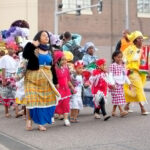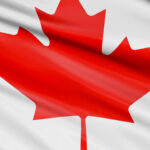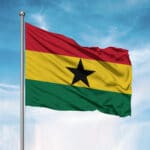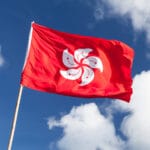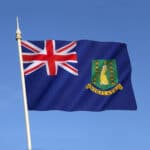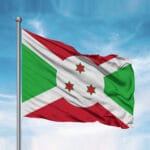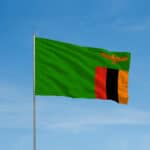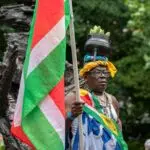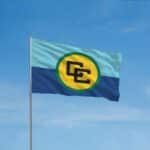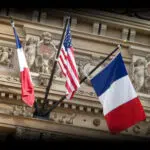Ghana’s Republic Day is celebrated on July 1 every year. The day marks the establishment of Ghana as a sovereign republic in 1960. Though the nation gained independence from the British in 1957, it was only in 1960 that the country became a realized, sovereign republic. Up until 2019, Republic Day was a national holiday but it was later declared a ‘commemorative holiday.’ The day is also celebrated as Senior Citizens’ Day to honor their contribution to the history of Ghana.
History of Ghana Republic Day
Before colonization, the sub-Saharan country of Ghana was home to the powerful Ashanti empire in the Southern region of the nation. Ghanaian land was replete with natural resources such as gold, which attracted several colonial powers to its doorstep. Though the Portuguese were the first colonizers to land in Ghana in the 15th century, it was the British Empire that successfully established control after a series of conflicts with the Ashanti Empire in the 1900s. The decades of exploitation and oppression culminated on March 6, 1957, when Ghana became the first country in the region to gain independence from the British.The following three years saw the building of a sovereign republic. On July 1, 1960, following a constitutional referendum and presidential election, Ghanaian president Dr. Kwame Nkrumah declared the country a republic and assumed the presidency. In the following years, Ghana played a major role in Cold War-era world politics as one of the leaders of the Non-Aligned Movement to de-escalate Cold War tensions.Ghana today celebrates its Republic Day in conjunction with Senior Citizens’ Day to honor the country’s rich heritage and the past struggle for independence and celebrate the sovereign nation that the country has become, despite the roadblocks that may have materialized.
Ghana Republic Day timeline
Ghana is annexed by the British and becomes a colony.
Ghana becomes the first sub-Saharan country to gain independence from the British.
Ghana is proclaimed a republic.
Ghana is declared a one-party state.
Ghana Republic Day FAQs
How many years has Ghana been a republic?
Ghana has been a republic for 62 years.
What does the name ‘Ghana’ mean?
‘Ghana’ means ‘Warrior King.’
What is Ghana’s official language?
English is Ghana’s official language.
How to Observe Ghana Republic Day
-
Read up on Ghanaian history
Ghana has a rich culture and heritage. Spend the day familiarizing yourself with the nation’s history.
-
Eat Ghanaian food
Food is often the most accessible part of a culture. Try eating a Ghanaian dish to get a sense of their style of cuisine.
-
Donate to a charitable foundation
Several organizations are working to address issues in Ghanaian society. If it’s within your means, donate to one of them that needs financial assistance.
5 Interesting Facts About Ghana
-
The world’s largest artificial reservoir
Ghana’s Lake Volta is the world's largest artificial reservoir.
-
The Gold Coast
Ghana was called the Gold Coast during colonial times because of its abundance of gold deposits.
-
Ghanain cocoa
Ghana is the second-largest cocoa producer in the world.
-
The Ashanti Empire
Ghana was home to the Ashanti Empire which survives to this day in the form of the constitutionally protected sub-national proto-state within the country.
-
Ethnic diversity
Ghana is home to over 70 ethnic groups including the Akan, Ewe, Mole-Dagbon, Ga-Dangme, Gurma, Guan, etc.
Why Ghana Republic Day is Important
-
It celebrates the rich history of Ghana
Ghanaian history is an account of splendor, struggle, and rebuilding. The day helps celebrate the events that led to the formation of Ghana.
-
It recognizes a decades-long struggle for independence
The Ghanaian struggle for independence spanned many years. The day commemorates the republic that formed as a result.
-
It celebrates the people who shaped the country
Considering its joint celebration with Senior Citizens’ Day, Republic Day celebrates the very people who formed the foundation of the independent republic. It is a day to honor them.
Ghana Republic Day dates
| Year | Date | Day |
|---|---|---|
| 2023 | July 1 | Saturday |
| 2024 | July 1 | Monday |
| 2025 | July 1 | Tuesday |
| 2026 | July 1 | Wednesday |
| 2027 | July 1 | Thursday |

